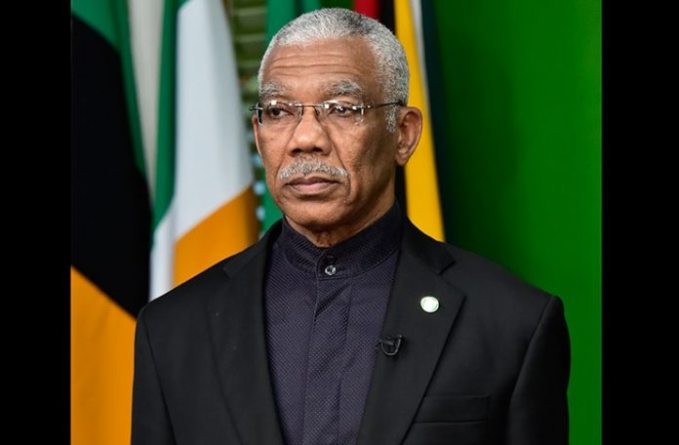Days before first oil… Political parties declare no detailed vision for oil sector
For the past four years, politicians attached to the APNU+AFC Coalition Administration and the People’s Progressive Party (PPP), have been preaching about their plans for the oil money. All of their propositions to use the money for the development of the nation have been broad.
And with the nation days away from First Oil, not a single politician has declared a detailed national vision, except to say, “…We will make tertiary education free, there will be targeted cash transfers…And we will diversify the economy.”
During a recent appearance on Kaieteur Radio’s Programme, Guyana’s Oil and You, it was brought to the attention of Natural Resources Minister, Raphael Trotman, that little is known about the government’s vision to diversify the economy which would ensure that the other sectors such as manufacturing are developed to support Guyana’s economy beyond oil.
To this he said, “Governments, the world over plan, but there is something called human nature, the human element that we cannot adequately plan for…But I can tell you that the government has a plan, a Decade of Development. We don’t want, as (President, David Granger) would say, to become intoxicated on oil.”
Minister Trotman added, “We are deliberately working on that and we have already identified some of the top areas that we want to use the oil (money) for to create a platform to go onto something else. Oil is finite; it won’t be here forever…”
Trotman further noted that the government’s vision, which would be unveiled soon, will see a focus on sectors such as agriculture and education.
On several occasions, Chatham House as well as the Natural Resources Governance Institute (NRGI) have impressed upon the nation’s leaders, the importance of having a clear vision of their objectives with resources from the petroleum sector.
Both have stressed that this will allow the government to focus their energies and resources on the country’s top priorities.
Specifically, the organisations emphasised that the vision should be underpinned by an analysis of available resources and capacity, as well as opportunity costs and risks associated with the chosen paths for development.
Chatham House and NRGI have said, too, that a vision for oil should be strategic about choosing priority sectors and lay out in detail, the role each government institution will play in delivering that vision and over what time period.
They have both noted that good leadership, consistency of purpose and dedication as well as effective implementation, will be crucial to the realisation of the nation’s vision for oil.






















